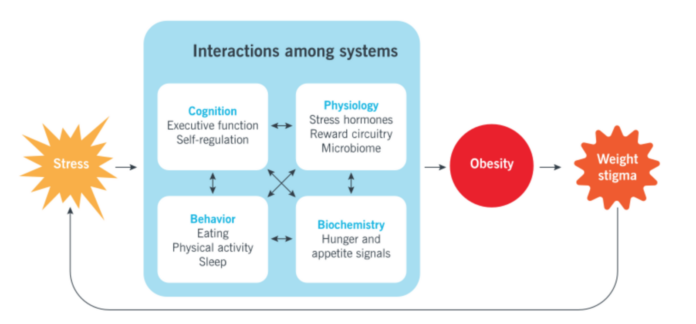Deadlines. Traffic. Waiting in line. Full email boxes. Politics. Kids. Money. Did I mention traffic? What do these all have in common? Stress. All of these cause stress, and not just a little – a lot.
We’ve come to normalize being stressed in our society. In fact, dare I say we’ve romanticized it a little bit? You tell me: If you met someone who was completely stress-free, how would you feel about them? First, probably a little jealous, but after that, would you not be thinking, “They must not have much of a life” or “They probably grew up with a silver spoon”?
It’s as if being stressed is a badge of honor, a recognition that we are killing ourselves. But it’s okay because if we weren’t, we would be labeled “lazy,” or worse (gasp) “lucky.”
The majority of us are suffering from chronic sleep deprivation, balancing soccer schedules and board meetings, while dodging and weaving the left lane lollygaggers as you open your banking app and transfer more savings into your checking because the price of groceries is absolutely sucking you dry.
Yeah, stress. So romantic.
So now you may be wondering, “So what? It’s stress, it’s normal, what’s the big deal?” The “big deal” is what happens when the body is under chronic stress, with the biggest problem being excessive weight gain. In fact, new research from UCLA has uncovered that stress and obesity are more intertwined than experts have ever thought. Below I have broken down the research. Big thanks to Precision Nutrition for making such an awesome graphic to help make the connection crystal clear.
The premise: Stress can affect multiple “systems” that are involved in weight control.
Each one of these systems has a feedback loop that can affect all the others. It’s these interactions that really cause the bigger problems, and it’s a cycle that is incredibly hard to break.
Cognition
Stress spares no prisoners, especially in the mind and specifically with self-regulation. Stress also negatively influences problem-solving skills, planning, organizing and the ability to focus and manage your emotions.
Behaviors
Stress influences eating, physical activity and sleep. All these behaviors all have their own feedback loops, too.
As the researchers state: “Lack of sleep can hinder physical activity, and lack of physical activity can disrupt sleep.”
Physiology
The researchers outline three ways stress might affect you physiologically:
- It increases stress hormones. This can make you want to eat more, and can also tell your body to store fat.
- Stress increases your brain’s appetite for “rewards” — feel-good chemicals such as dopamine. These can drive you to eat foods that are highly palatable (sugar and fat) or seek out alcohol or drugs.
- Stress may negatively affect your microbiome – a fancy name for the microorganisms in our digestive tracts – which could make you more susceptible to weight gain.
Biochemistry
Stress may also affect blood chemicals related to weight control, especially leptin, ghrelin and neuropeptide Y, which affect hunger, appetite and fat storage.
Weight stigma
The researchers define weight stigma as “the sum of prejudice, discrimination and negative attitudes aimed at those perceived as overweight.”
This in itself creates another feedback loop. Obesity leads to weight stigma which then creates … more stress. And on and on it goes.
In part two, I will go into detail about practical and effective ways to cope with stress and ultimately help decrease the amount of stress in daily life. In the meantime, slow down, remind yourself that stress causes quite the mess physiologically, and no matter how irritating the traffic may be, it’s far better than dealing with a stress feedback loop.
Want to learn more?


























